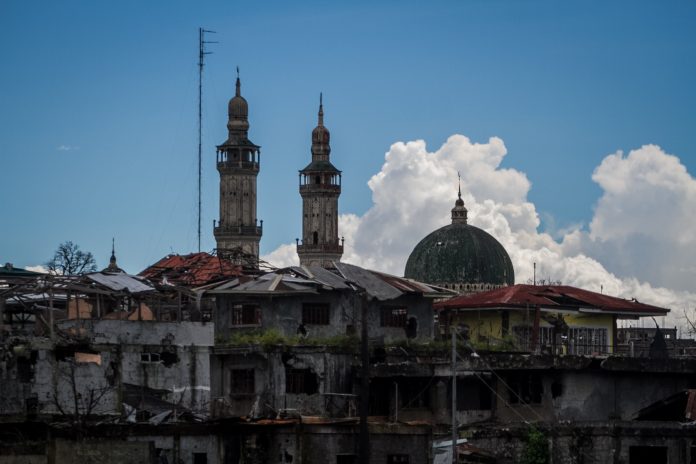Eight years after the Marawi siege, more than 8,000 displaced residents remain in limbo, living in transitional shelters with limited access to clean water, while over 300 cases of missing persons remain unresolved, the International Committee of the Red Cross (ICRC) said Thursday.
“The most affected area in Marawi remains largely a ghost town,” the ICRC said, warning that the prolonged displacement and lack of answers for missing persons are hampering lasting peace.
“It is disheartening to see so many families – around 8,200 people – living for eight years in inadequate conditions in shelters that were supposed to be temporary,” said Johannes Bruwer, head of the ICRC delegation in Manila. “They are now paying rent and yet have irregular access to clean water, adding immense strain to their daily lives.”
While the government has taken steps—such as building infrastructure and forming the Marawi Compensation Board—many residents say compensation remains insufficient and paperwork burdensome.
“Eight years is a long time; people have been displaced for far too long,” Bruwer said. “Returning to their neighbourhoods is a step toward normalcy and a necessary part of their healing.”
The ICRC called on newly elected and incumbent officials at all levels to accelerate reconstruction in the most affected area and ensure basic services for those in temporary shelters.
The organization also raised alarm over the 300 unresolved cases of missing persons linked to the 2017 conflict. It emphasized that under the Geneva Conventions—of which the Philippines is a party—the government is obligated to account for the missing.
Apart from the emotional toll, families struggle to access benefits due to the absence of legal documentation certifying death or disappearance.
Since 2017, the ICRC has supported over 400 families of the missing with psychosocial services and livelihood assistance. It also aids forensic efforts to identify remains recovered from cemeteries in Maqbara and Dalipuga.
“We urge the Philippine authorities to provide answers as soon as possible,” Bruwer said. “By clarifying the fate of the missing and identifying remains, the government will help families move toward healing and trust-building.”
“Let us realize their families’ shared hope for more support and for closure, so that they can move forward with peace in their hearts,” he added.









